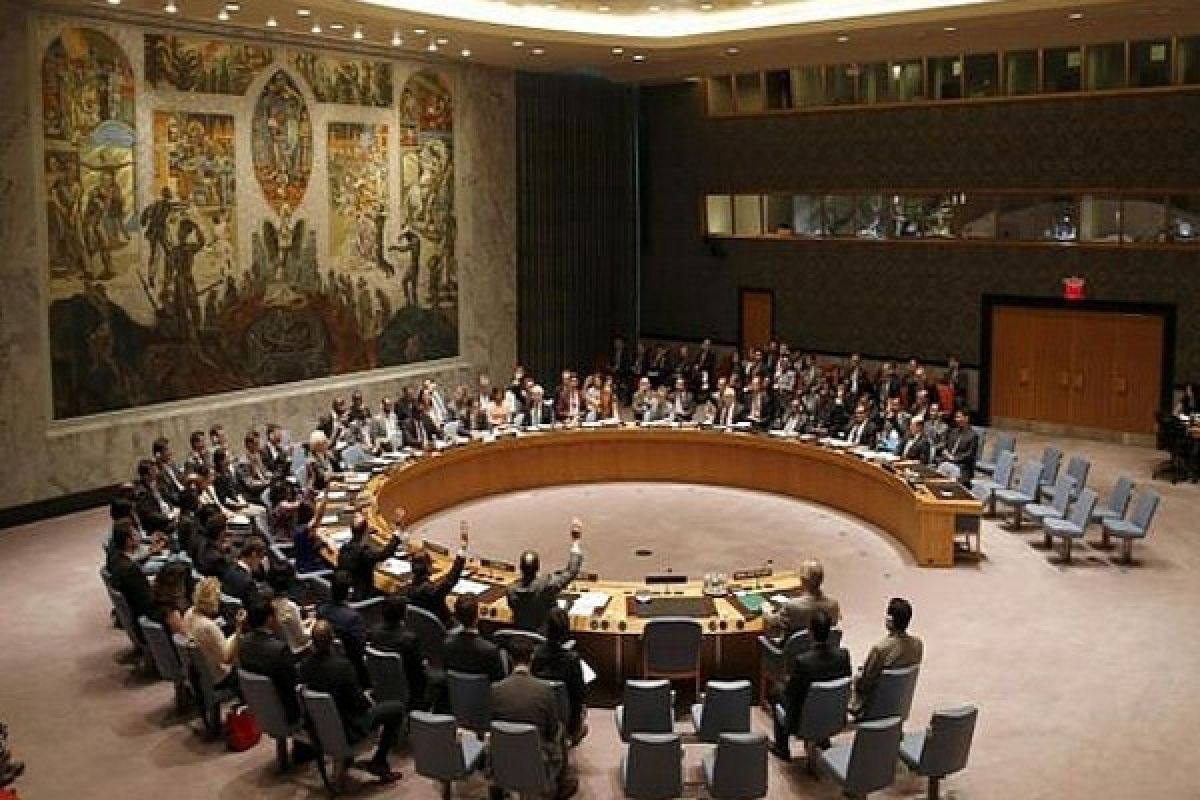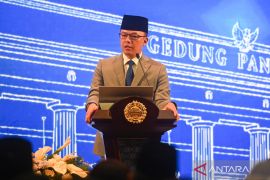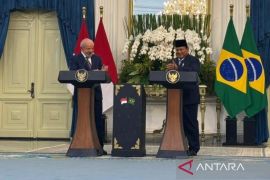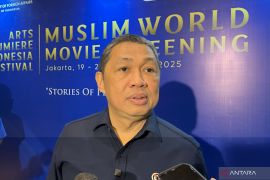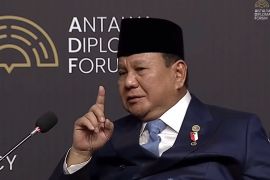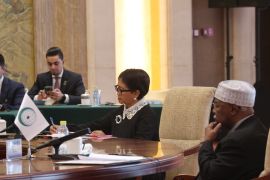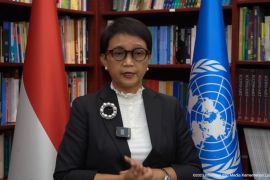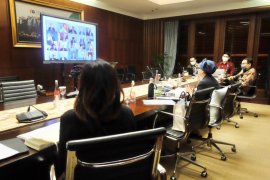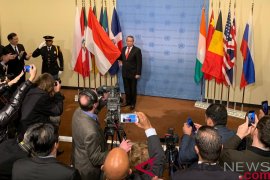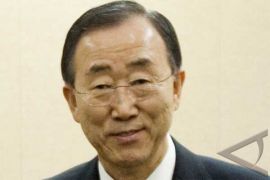At the initiative of Indonesia, five resolutions were adopted, both at the UN Security Council and the UN General AssemblyJakarta (ANTARA) - On December 31 this year, Indonesia will wrap up its stint as a non-permanent member of the United Nations Security Council (UNSC).
This is the fourth time Indonesia has occupied a non-permanent UNSC seat, after 1973-1974, 1995-1996, and 2007-2008.
Over the past two years, the country has held the UNSC presidency twice — in May, 2019 and August, 2020. The theme for the first stint was ‘Investing in Peace’ and the second ‘Advancing Sustainable Peace’, both reflecting the nation’s vision and role in the UNSC in promoting world peace.
The Foreign Ministry affirmed the country continues to strive to play a role as a bridge-builder, contribute to world peace amid the COVID-19 pandemic, and safeguard the principles of international law.
Such responsibility is in-line with the mandate of the 1945 Constitution to participate in a world order based on freedom, lasting peace, and social justice.
Despite the pandemic, under Indonesia’s second-term Presidency, the UNSC managed to carry out a total of 50 activities in both virtual and in-person formats, including 12 open meetings, 12 closed meetings, 5 additional agendas, and 12 UNSC Subsidiary Body meetings.
The Council also produced four resolutions, notably on extending the mandate of the peacekeeping mission in Lebanon (UNIFIL); extending the mandate of the peacekeeping mission in Somalia (UNSOM); extending the sanctions regime in Mali; and, on female peacekeeping personnel, initiated by Indonesia.
In fact, in the past two years, the United Nations endorsed five Indonesia-initiated resolutions at multilateral forums.
"At the initiative of Indonesia, five resolutions were adopted, both at the UN Security Council and the UN General Assembly," Foreign Minister Retno Marsudi said.
The resolutions are UNSC Resolution No. 2538 concerning Women in Peacekeeping Operations; UNGA Resolutions on ‘International Year of Creative Economy for Sustainable Development 2021’, ‘Global Solidarity to Fight COVID-19’, ‘International Cooperation to Address Challenges Faced by Seafarers as a result of COVID-19 Pandemic to Support Global Supply Chains’, and ‘Global Health and Foreign Policy: Strengthening Health System Resilience through Affordable Healthcare for All’.
In its resolution on the protection of seafarers, the 193-member UNGA urged all countries to designate seafarers and other marine personnel as key workers, immediately implement measures allowing safe ship crew changes, allow stranded seafarers to be repatriated, and ensure access to medical care for all seafarers and other marine personnel. Currently, Indonesia ranks third in terms of seafaring manpower in the world, after China and the Philippines.
"This resolution is clear evidence of Indonesia's achievement as the world's largest maritime and archipelagic country in encouraging cooperation to protect seafarers, especially from the impact of the COVID-19 pandemic," Minister Marsudi noted.
The Indonesian Presidency also organized three signature events during which Foreign Minister Marsudi chaired two High-Level Open Debate meetings on Indonesian initiatives on peace-building during the pandemic and the link between terrorism and organized crime, as well as an Arria Formula meeting regarding cyber attacks on vital infrastructure.
She also used the Presidency to promote Indonesia’s national cultural assets through batik, traditional dance performances, and culinary diplomacy (Gastro Diplomacy).
Indonesia also encouraged the UNSC to strengthen security sector governance in post-conflict countries.
"The situation of post-conflict countries is getting more complicated due in part to the poor capacity and weakness of security institutions to support the handling of the COVID-19 pandemic," Deputy Foreign Minister Mahendra Siregar said in early December this year during the UNSC High-Level Meeting on Peace-building and Sustaining Peace, Security Sector Governance and Reform.
Siregar drew attention to the need to intensify the UN's role in supporting security sector reforms in conflict-stricken nations.
"To implement its mandate, peacekeeping mission, and special political missions effectively, the UN must be equipped with sufficient resources and capacity," he emphasized.
Overall, Indonesia has sensed pride in having clocked several achievements while chairing three committees at the United Nations Security Council (UNSC) in the last two years.
Speaking at a webinar on December 16, 2020, Ambassador Dian Triansyah Djani, permanent representative of the Republic of Indonesia to the United Nations in New York, highlighted the successes of the three UNSC Committees in combating terrorism and preventing access to weapons of mass destruction for non-governmental entities.
Since January 1, 2019, Ambassador Djani has chaired the 1267 Committee on ISIL / Da'esh - Al Qaeda; the 1988 Committee on the Taliban; and the 1540 Committee on the nonproliferation of weapons of mass destruction.
The 1267 Committee, under Indonesia’s leadership, set a new record in updating the sanctions list data. The number of responses from countries providing information to the committee during the 2019-2020 period was the highest in the history of the sanctions committee.
Furthermore, Indonesia's achievements, as chairman of the 1988 Committee, were mirrored in its success in facilitating a consensus on granting travel exemption permits for several names to allow them to participate in the peace and reconciliation process in Afghanistan.
"Indonesia's efforts, so far, have always referred to the main objective of the committee, which is to support the peace and reconciliation process," the ambassador stated.
The COVID-19 pandemic presented its own challenges to Indonesia's leadership. However, the 1267 Committee managed to become the first UNSC committee to meet virtually, while the 1540 Committee was the first committee to meet in person at the UN Headquarters, under the application of stringent health protocols.
All members of the UNSC lauded Indonesia's leadership of the three committees for making positive contributions and ensuring that the committees continue to fulfill their mandate amid the pandemic.
Indonesia’s election to lead the three subsidiary bodies of the UNSC demonstrates the trust of the international community in the nation’s credibility and leadership on the issue of combating terrorism.
Under Indonesia's chairmanship, the three committees made all decisions by consensus, based on the principles of transparency, professionalism, and impartiality.
"The track record of Indonesia's diplomacy as a bridge-builder and consensus-maker on various issues is the main asset for gaining trust from the international community. This is a concrete result of Indonesia's active efforts to always seek consensus and a middle way to bridge differences," Djani stated. (INE)
Related news: UNSC should fortify security sector governance in postconflict nations
Related news: UNSC should act swiftly to halt violence in Afghanistan: Marsudi
Related news: Palestinian issue remains RI's priority as UNSC membership to end
Editor: Azis Kurmala
Copyright © ANTARA 2020
